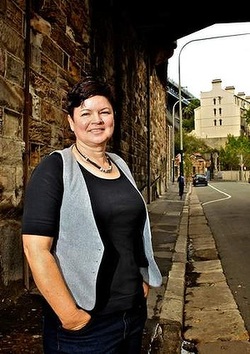
Katherine was interviewed by Linda Morris for a feature article in the Sydney Morning Herald's Spectrum in 2013.
"A paramedic knows better than anyone that catastrophe, even death, lies in wait for ordinary people, striking at the most unlikely of times. Meeting people on the worst day of their life was one reason Katherine Howell decided to step back from the brightly lit, high-stakes world of emergency medicine to write."
Read the rest here.
"A paramedic knows better than anyone that catastrophe, even death, lies in wait for ordinary people, striking at the most unlikely of times. Meeting people on the worst day of their life was one reason Katherine Howell decided to step back from the brightly lit, high-stakes world of emergency medicine to write."
Read the rest here.
